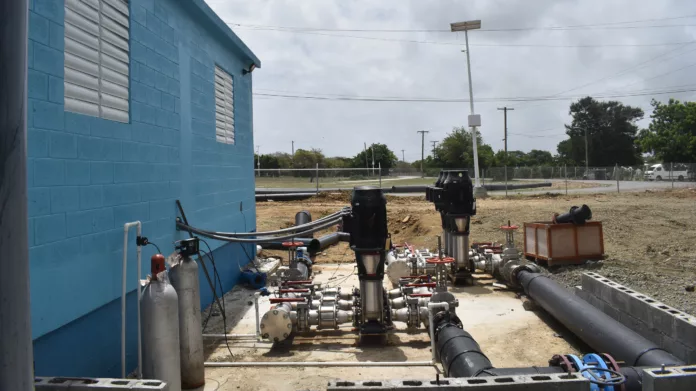By Charminae George
Water rates paid by consumers to the Antigua Public Utilities Authority (APUA) are expected to increase to reflect the costs and investments associated with water production. This rise is set to occur after the goal of 24/7 water distribution to residents is achieved.
The approximate timeline to achieve this goal is next year, according to Ian Lewis, the Water Business Unit Manager who spoke to media after a walkthrough of the Fort James reverse osmosis plant on Monday.
Anazette Reynolds, APUA’s Corporate Communications Officer, told Observer yesterday of the reasons why the eventual increase in the water rates is necessary.
“The previous rates are attached to when we had ground and surface water. That’s no longer the case. So, water at this time, they are operating at a total loss. They are being subsidised by electricity and telecoms,” she stated.
Reynolds also explained why water production via reverse osmosis is expensive.
“Ever so often, you have to replace filters, membranes and all that, and those are costly, and the plant utilises electricity…a lot of energy,” she added.
The increase in water rates will allow for the production of water by the utilities authority to be sustainable.
“The water rates will not be a high profit margin but more a break-even just to be able to maintain itself,” Reynolds said.
Public Utilities Minister Melford Nicholas said a public consultation regarding the increase in the rates will be held in the future.
According to Reynolds, the last increase in water rates was January 1 1993.
Meanwhile, another plan in the pipeline is for the complete migration to smart metering.
“Currently, within the Water Business Unit they are using some meters that are mechanical meters… they do go bad. They will go bad because of high pressure, and in-line debris (particles of stone and sand),” Reynolds explained.
She added that the transition will allow for more efficient billing, the assessment of water usage based on the stats, and the elimination of water meter tampering.

